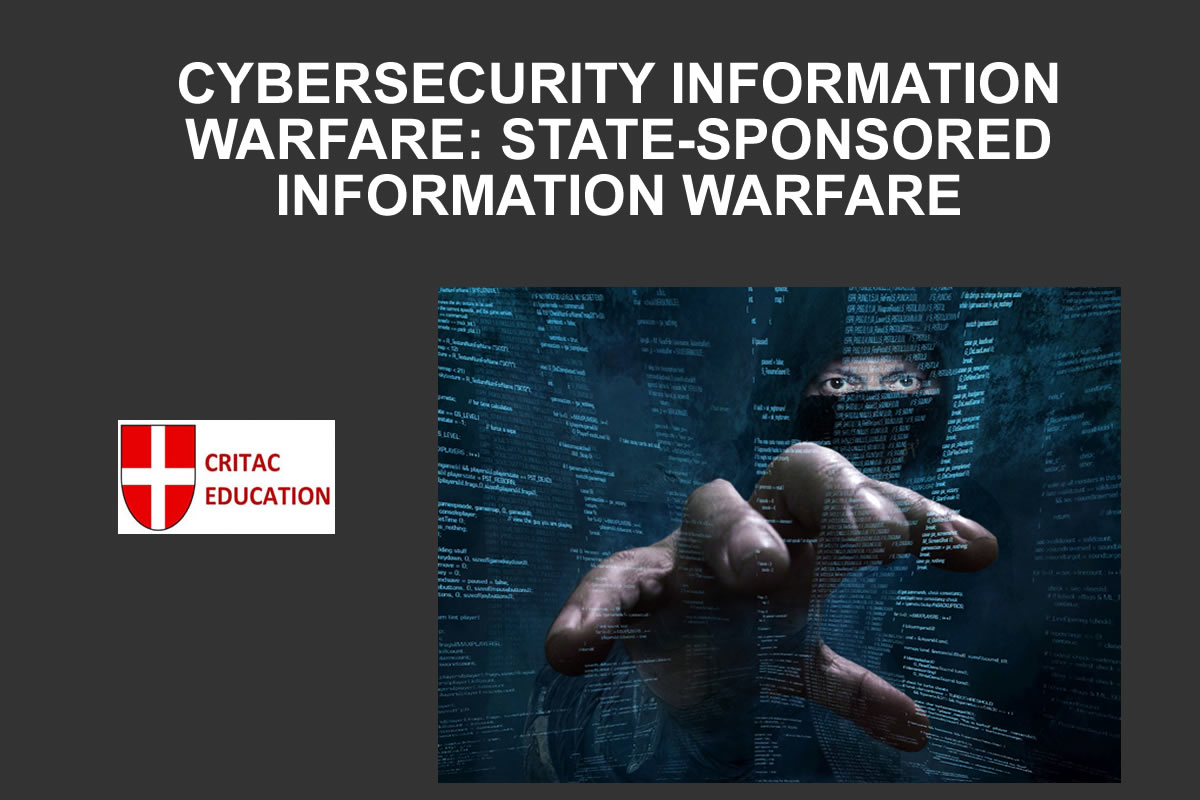"Understanding Cybersecurity Information Warfare" is a comprehensive exploration that delves into the intricate intersection of cybersecurity and state-sponsored information warfare. This course equips participants with a profound understanding of historical contexts, key terminology, and the evolution of information warfare. Through a blend of theoretical insights and practical applications, participants will gain a comprehensive insight into the complex world of cybersecurity and information warfare.
Key Features:
Defining the Intersection of Cybersecurity and State-Sponsored Information Warfare:
- Explore the dynamic relationship between cybersecurity and state-sponsored information warfare.
- Understand the historical context and significance of this complex nexus.
- Acquire a foundation in key terminology and essential concepts.
Information Warfare Fundamentals:
- Investigate the basics of information warfare and analyze historical examples.
- Examine the power and influence wielded by state-sponsored information warfare.
The Digital Evolution of Information Warfare:
- Explore information warfare in the modern digital era.
- Examine the role of technology and cyber capabilities in shaping information warfare.
- Analyze Russia's interference in the 2016 U.S. Presidential Election as a case study.
The Nature of State-Sponsored Information Warfare:
- Identify state actors engaged in information warfare.
- Understand geopolitical contexts, objectives, and tactics employed by state-sponsored entities.
- Analyze Russia's annexation of Crimea and its information warfare strategies.
The Psychology of Information Warfare:
- Explore the psychological aspects of information warfare.
- Understand the motivations of state actors and their impact on perception, behavior, and decision-making.
- Analyze disinformation campaigns during the 2020 U.S. Presidential Election.
Cyber Espionage and State-Sponsored Information Warfare:
- Investigate the role of cyber espionage in information warfare.
- Examine nation-state actors and their objectives through case studies.
Influence Operations in State-Sponsored Information Warfare:
- Explore influence operations in political and social contexts.
- Analyze manipulative tactics used by state actors with a focus on Russian interference in the 2016 US Presidential Election.
Disinformation and Misinformation in State-Sponsored Information Warfare:
- Examine the role of false information in information warfare.
- Analyze media manipulation, the spread of misinformation, and their impact on public perception.
- Investigate disinformation surrounding the annexation of Crimea.
Detecting and Countering State-Sponsored Information Warfare:
- Learn techniques and tools for identifying information warfare efforts.
- Understand national and international responses, and strategies for resilience and defense.
- Analyze the 2007 cyber attacks on Estonia as a case study.
Legal and Ethical Considerations:
- Discuss ethical dilemmas in countering state-sponsored information warfare.
- Explore legal frameworks, international agreements, and the balance between security and freedom of expression.
- Analyze the European Union's response to disinformation.
In-Depth Case Studies and Advanced Topics:
- Delve into historical and contemporary case studies of state-sponsored information warfare.
- Explore the role of social media, critical infrastructure, artificial intelligence, economic espionage, and their impact on various sectors.
- Investigate global perspectives, the future of information warfare, and its intersection with geopolitics, public health, education, and national security.
Conclusion and Recommendations:
- Summarize key takeaways from the course.
- Provide policy and practical recommendations for combating state-sponsored information warfare.
- Reflect on the ongoing battle against information warfare in the age of cybersecurity and global conflict.
Upon completion of this course, participants will possess a comprehensive understanding of cybersecurity information warfare, enabling them to contribute to the ongoing efforts to safeguard against evolving threats in the digital age.
